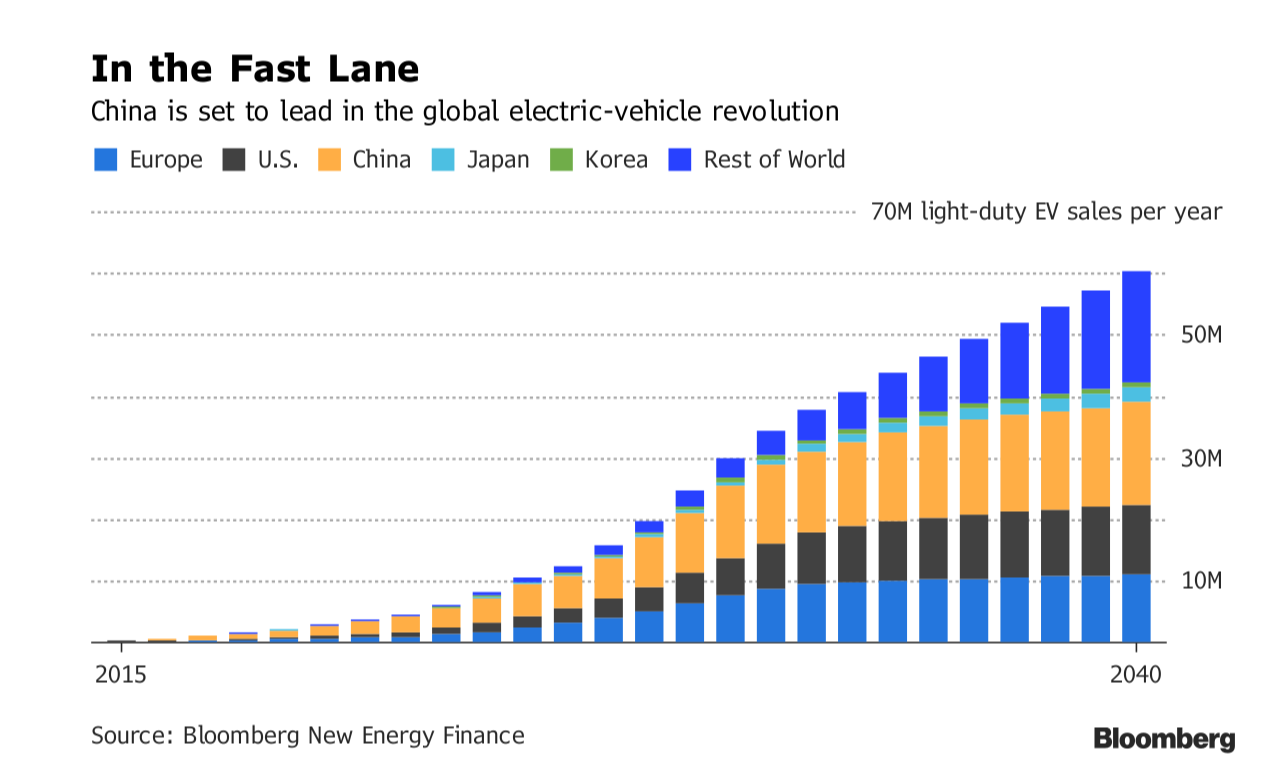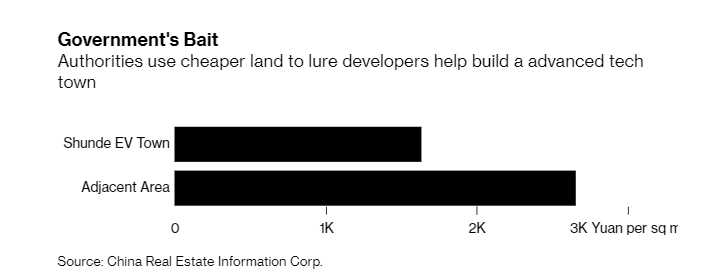China’s Next Real Estate Bubble: Building EV-Production Cities Across The Country
Just in time for Tesla’s big move to China, entire cities are popping up from within the country dedicated solely to making electric vehicles.
Shunde New Energy Vehicle Town in China is taking shape inside of the city of Foshun as a hub for EV production and research. It is estimated that the city could eventually generate $15 billion in revenue per year.
Bloomberg calls the cities “at least 20 electric-centric versions of Detroit under construction as China” as the country continues to bet big on EV technology. President Xi Jinping hopes that EV manufacturers will help boost other industries. He aims for the country to become a “manufacturing superpower” by 2025, in hopes that it’ll make China more self-sufficient and diversified.
And cities in China are working to shift their economies to become a part of Xi’s new plan. They are offering cheap land and tax breaks to bring in car makers, parts supplies and engineering labs, in hopes of bolstering their own local economies.
He Xiaopeng, chairman of Xpeng Motors Technology Ltd., said: “The new-energy vehicle industry is a bet local governments must take. A successful EV maker could bring at least 200 companies in the industry chain into a province.’’
So far, about $30 billion has been committed to developing these EV towns. The commitments range from fixed asset investments to development costs. It’s a move that’s typical of China’s “command-led” approach to its economy, as Bloomberg calls it.
To us, it looks similar to the country’s real estate strategy: try to build it, and hope they come.
That’s what China has been doing, erecting industrial parks, apartments and schools while laying out their offers – and sitting back, hoping that companies come in to take them up on thier offers.
Between 2009 and 2017, the country spend about $36.5 billion subsidizing EV sales. This could be why China now accounts for more than half of all passenger EV sales worldwide.
The rapid urbanization of the country has taken up many available land tracts, which has in turn pushed prices higher and made zoning laws tougher. By committing to EVs, local officials are likely to find it easier to get central government approval for redevelopment plans.
Shunde NEV Town is being built by China’s largest developer, Country Garden. The company has promised to bring EV-related businesses and meet tax revenue targets.
Liu Wei, who’s overseeing the project for Country Garden said: “The industry chain is far more comprehensive than car manufacturing. We’re well aware the fever will fade, but some emerging firms will grow, and that’s who we want to house.”
Country Garden has been able to keep office rents cheap (by as much as 25%) by using land in small towns, instead of adjacent areas. The businesses in these small towns will then need workers.
Cui Dongshu, secretary general of the China Passenger Car Association, said: “The towns have at least one key resource that EV makers and suppliers are eager to own: the land. That will naturally attract them to move into the towns.”
But EVs only make up less than 5% of total car sales in China. Some analysts see these pop-up towns as destined for failure, as a result. John Zeng, managing director of LMC Automotive Shanghai said: “Most of those EV towns will fail. This wave of electric-vehicle building will come to a life-or-death moment. When EV carmakers are being squeezed, the ‘EV Town’ bubble will burst.’’
Liu Wei concluded: “I admit that the EV sector is still working its own way. But we have been well aware of sector challenge since planning it two years ago, and we’re confident that we can adapt to the change.”
Tyler Durden
Sun, 12/29/2019 – 20:00
![]()
Zero Hedge’s mission is to widen the scope of financial, economic and political information available to the professional investing public, to skeptically examine and, where necessary, attack the flaccid institution that financial journalism has become, to liberate oppressed knowledge, to provide analysis uninhibited by political constraint and to facilitate information’s unending quest for freedom. Visit https://www.zerohedge.com


